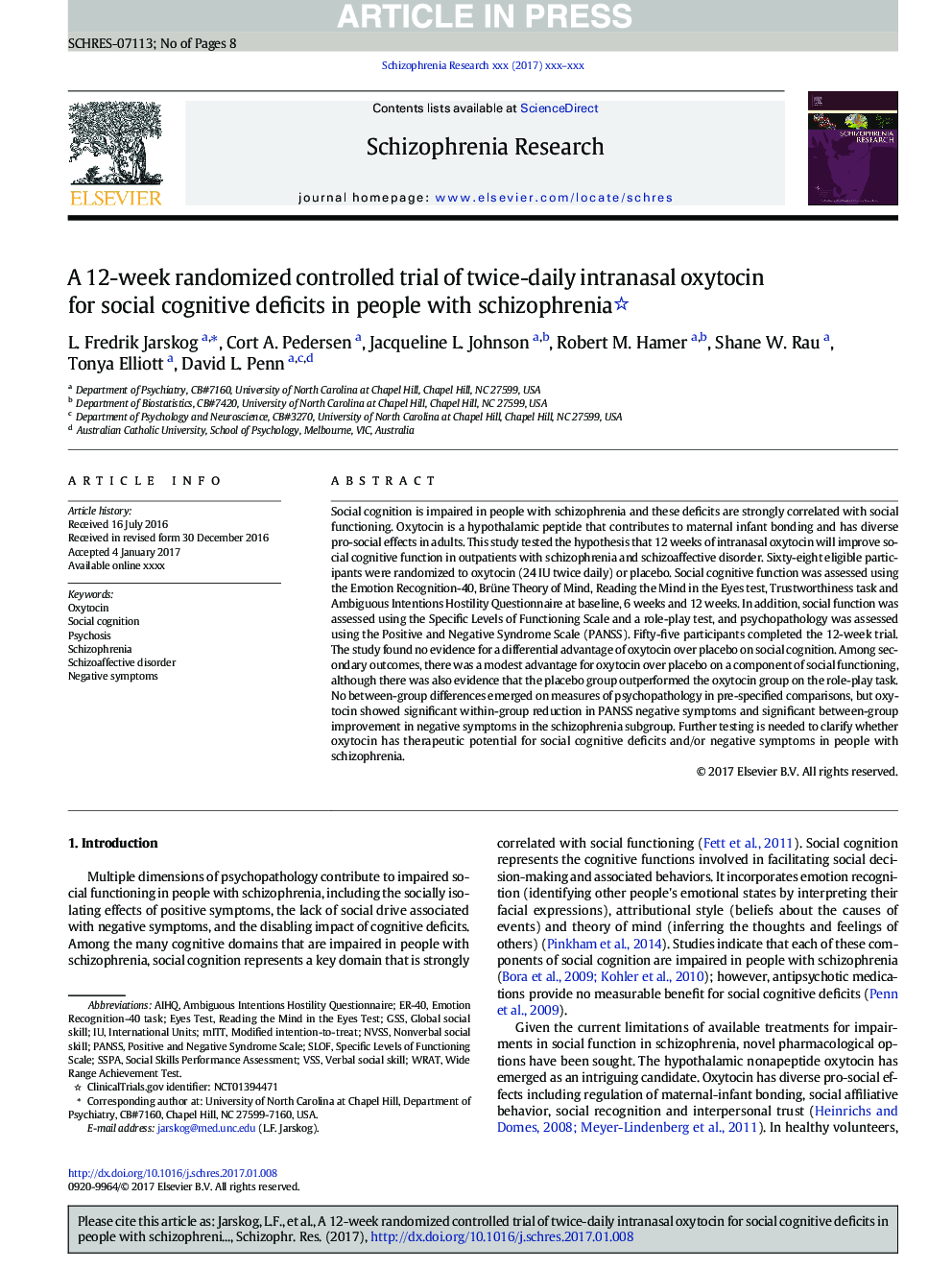| Article ID | Journal | Published Year | Pages | File Type |
|---|---|---|---|---|
| 4934914 | Schizophrenia Research | 2017 | 8 Pages |
Abstract
Social cognition is impaired in people with schizophrenia and these deficits are strongly correlated with social functioning. Oxytocin is a hypothalamic peptide that contributes to maternal infant bonding and has diverse pro-social effects in adults. This study tested the hypothesis that 12Â weeks of intranasal oxytocin will improve social cognitive function in outpatients with schizophrenia and schizoaffective disorder. Sixty-eight eligible participants were randomized to oxytocin (24Â IU twice daily) or placebo. Social cognitive function was assessed using the Emotion Recognition-40, Brüne Theory of Mind, Reading the Mind in the Eyes test, Trustworthiness task and Ambiguous Intentions Hostility Questionnaire at baseline, 6Â weeks and 12Â weeks. In addition, social function was assessed using the Specific Levels of Functioning Scale and a role-play test, and psychopathology was assessed using the Positive and Negative Syndrome Scale (PANSS). Fifty-five participants completed the 12-week trial. The study found no evidence for a differential advantage of oxytocin over placebo on social cognition. Among secondary outcomes, there was a modest advantage for oxytocin over placebo on a component of social functioning, although there was also evidence that the placebo group outperformed the oxytocin group on the role-play task. No between-group differences emerged on measures of psychopathology in pre-specified comparisons, but oxytocin showed significant within-group reduction in PANSS negative symptoms and significant between-group improvement in negative symptoms in the schizophrenia subgroup. Further testing is needed to clarify whether oxytocin has therapeutic potential for social cognitive deficits and/or negative symptoms in people with schizophrenia.
Keywords
Related Topics
Life Sciences
Neuroscience
Behavioral Neuroscience
Authors
L. Fredrik Jarskog, Cort A. Pedersen, Jacqueline L. Johnson, Robert M. Hamer, Shane W. Rau, Tonya Elliott, David L. Penn,
